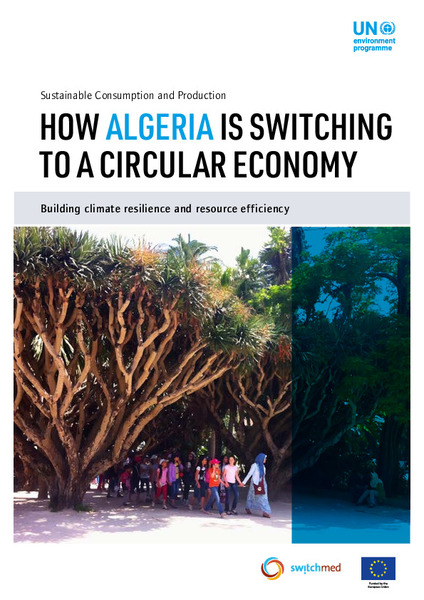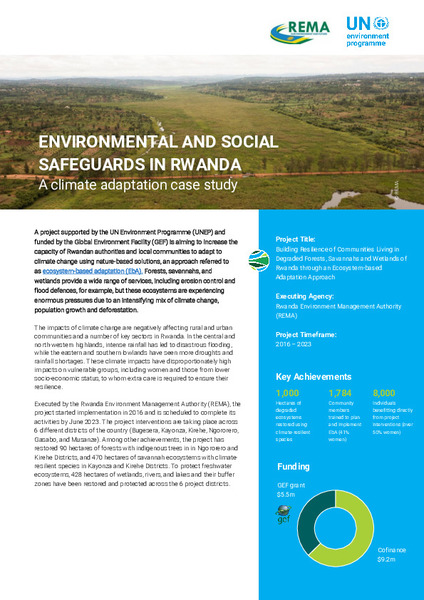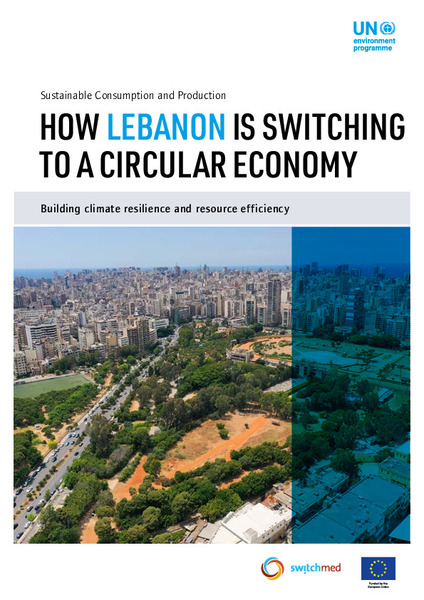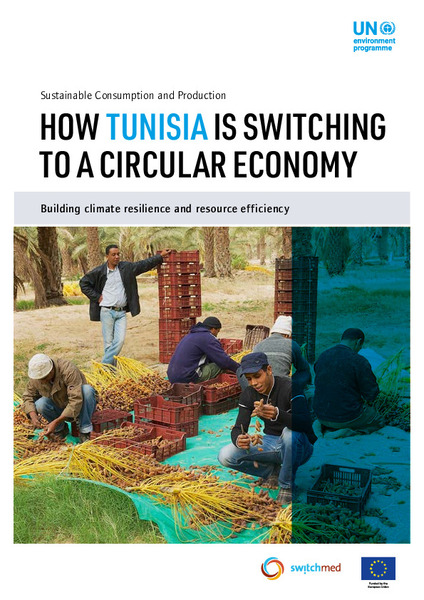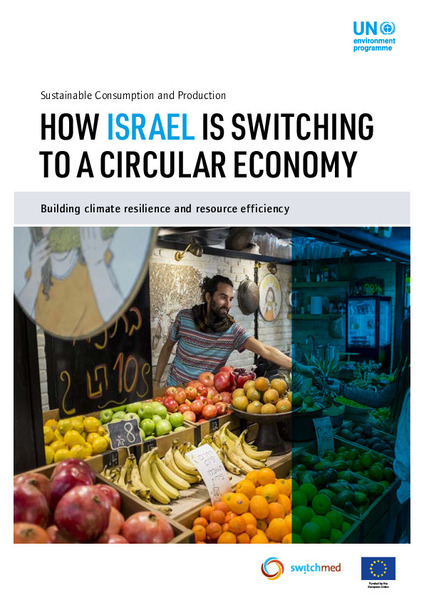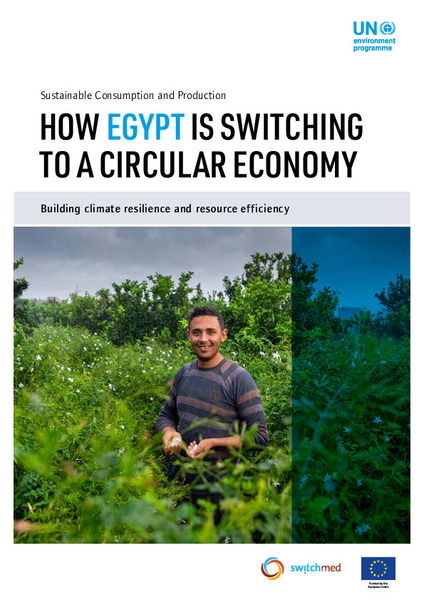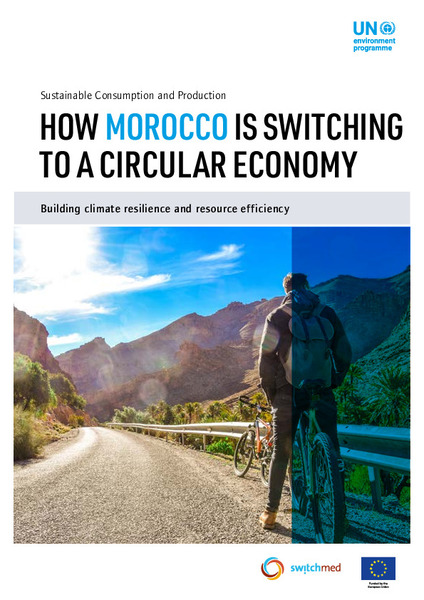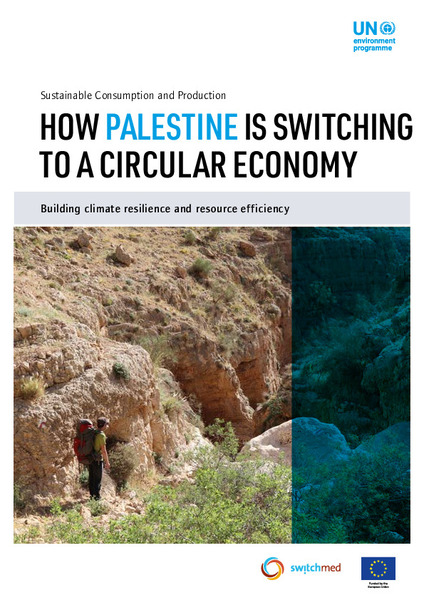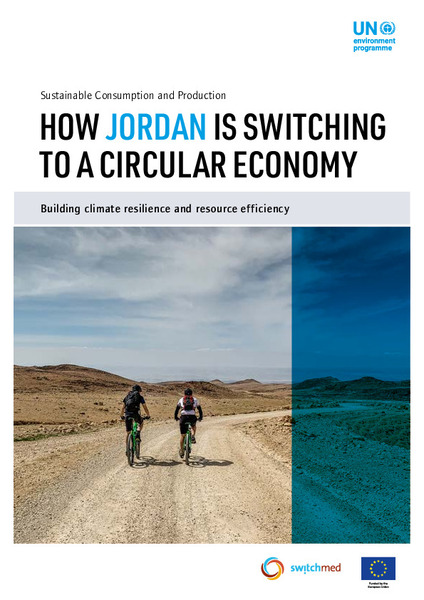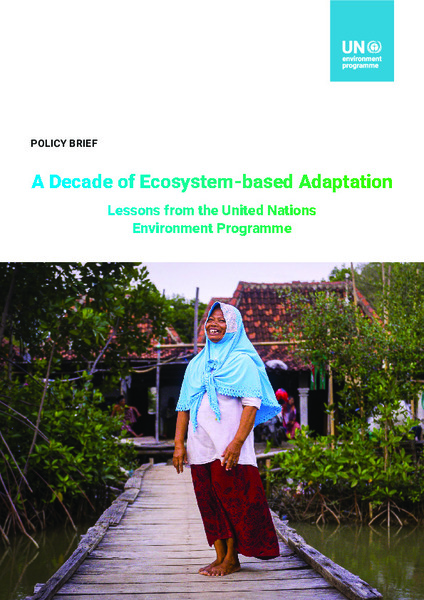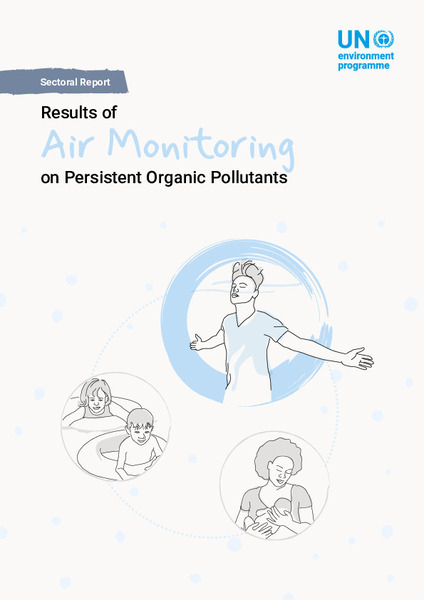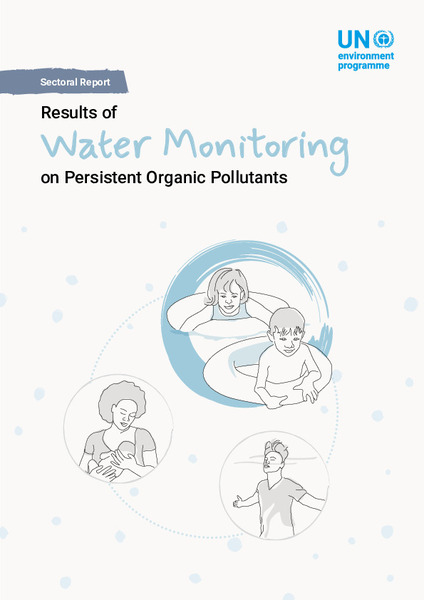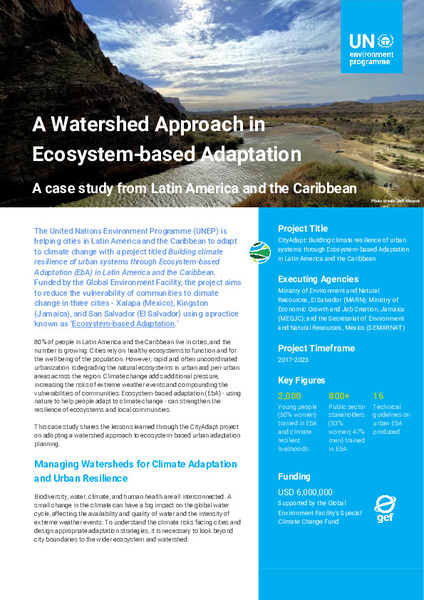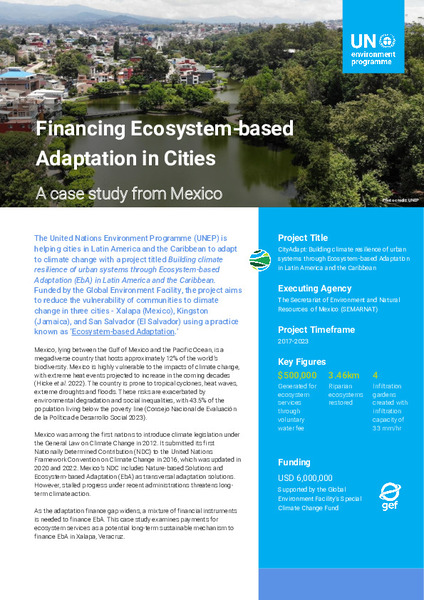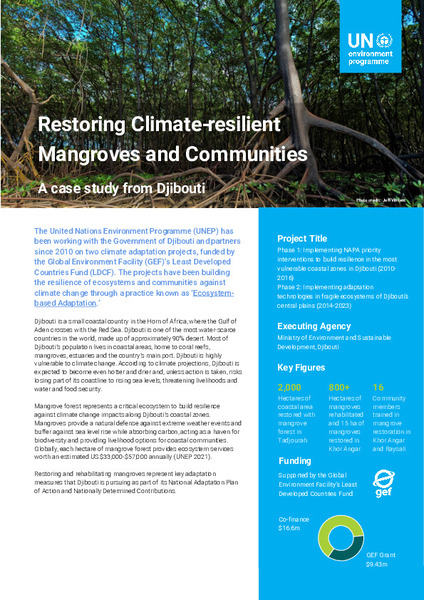Browsing Project Reports by Issue Date
Now showing items 1-20 of 28
-
Ecosystem-based Adaptation - Stakeholder Dialogue Report
(2023-04)Ecosystem-based adaptation is an approach that uses biodiversity and ecosystem services to help communities adapt to the impacts of climate change. For example, protecting coastal habitats like mangroves provides natural ... -
National Adaptation Planning: Emerging Lessons Learned from UNEP Projects - Policy Brief
(2023-10)This briefing note provides a snapshot summary of the early lessons learned from UNEP’s NAP project portfolio. Although the assessment focused on 6 of the 18 countries being supported, several key messages and design ... -
How Algeria is Switching to a Circular Economy: Building climate resilience and resource efficiency
(United Nations Environment Programme, 2023-11)Algeria considers the SCP-NAP to be one of the implementation tools for its National Strategy for Environment and Sustainable Development, through which it hopes to achieve its goals under Agenda 2030 and the Sustainable ... -
Environmental and social safeguards in Rwanda - A Climate adaptation case study
(United Nations Environment Programme, 2023-11)A project supported by the UN Environment Programme (UNEP) and funded by the Global Environment Facility (GEF) is aiming to increase the capacity of Rwandan authorities and local communities to adapt to climate change using ... -
How Lebanon is switching to a circular economy
(2023-11)Lebanon’s NAP process began with a thorough assessment of the state of SCP in the country, and a review of existing policies and actions in the industrial sector. A plan was developed for cleaner production in Lebanese ... -
How Tunisia is switching to a circular economy
(United Nations Environment Programme, 2023-11)Tunisia’s NAP process began with a thorough assessment of the state of SCP in the country, and from that two 10-year plans were developed, one for the agri-food sector and the other for tourism. Development of the NAP, and ... -
How Israel is Switching to a Circular Economy
(United Nations Environment Programme, 2023-11)In Israel, the Ministries of Environmental Protection and Economy conducted a year-long scoping process to gather information about what could be done, and what was being doing. SwitchMed supported a series of eight workshops ... -
How Egypt is Switching to a Circular Economy: Building climate resilience and resource efficiency
(2023-11)Egypt’s NAP was based upon its 2013 Green Economy Scoping Study, which assessed the potential for a transition to a green and more sustainable economy. The NAP is considered a significant milestone on the road to integrating ... -
How Morocco is switching to a circular economy
(United Nations Environment Programme, 2023-11)In developing its National Framework Plan for Morocco, the country examined a number of strategic orientations, including the economic and behavioural changes needed for ecological transition, incentives for business and ... -
How Palestine is switching to a circular economy
(United Nations Environment Programme, 2023-11)Palestine’s NAP process began with wide-ranging consultations and a thorough assessment of the state of SCP in the country. More than 300 people took part in the development process. The NAP was conceived in line with the ... -
How Jordan is switching to a circular economy
(United Nations Environment Programme, 2023-11)SwitchMed supported the Ministry of Environment in bringing together more than 300 participants to workshops that supported the Hashemite Kingdom of Jordan in developing its NAP. Jordan decided as part of this process that ... -
Review of Facts, Experiences, Achievements, and Challenges in Relation to POPs Monitoring
(United Nations Environment Programme, 2023-12)This review is based on the review of information from the implementation of the Global Monitoring Plan in core media (ambient air, human breast milk/blood, water) by strategic partnerships and by the United Nations ... -
Organization and Outcomes of Four Rounds of Interlaboratory Assessments on Persistent Organic Pollutants
(2023-12)Persistent organic pollutants (POPs) have been shown to adversely impact human health and the environment. Concern over POPs is also attributed to their stability and persistence in the environment, potential to undergo ... -
A Decade of Ecosystem-based Adaptation: Lessons from the United Nations Environment Programme - Policy Brief
(2024-03)Over the past decade, the United Nations Environment Programme (UNEP) has embraced Ecosystem based Adaptation (EbA) in supporting climate change response projects across the world. The adoption by UNEP of the EbA approach ... -
Results of Air Monitoring of Persistent Organic Pollutants - Sectoral Report
(United Nations Environment Programme, 2024-04)The Global Monitoring Plan (GMP) under the Stockholm Convention on POPs is a tool that collects information on POPs in the environment and in humans. The GMP is a key component of the effectiveness evaluation of the ... -
Results of Water Monitoring on Persistent Organic Pollutants - Sectoral Report
(2024-04)This report summarizes and assesses the results from four regional UNEP/GEF GMP2 projects coordinated and implemented by the United Nations Environment Programme (UNEP) to support implementation of the global monitoring ... -
Gender-responsive Ecosystem-based Adaptation: A case study from El Salvador
(United Nations Environment Programme, 2024-04)Coffee represents the backbone of the economy in El Salvador, with the vast majority produced by small-scale farmers. Almost 80% farmers cultivate on small plots of less than 3.5 hectares. However, changing temperatures ... -
A Watershed Approach in Ecosystem-based Adaptation: A case study from Latin America and the Caribbean
(2024-04)80% of people in Latin America and the Caribbean live in cities, and the number is growing. Cities rely on healthy ecosystems to function and for the well-being of the population. However, rapid and often uncoordinated ... -
Financing Ecosystem-based Adaptation in Cities: A case study from Mexico
(2024-04)Mexico was among the first nations to introduce climate legislation under the General Law on Climate Change in 2012. It submitted its first Nationally Determined Contribution (NDC) to the United Nations Framework Convention ... -
Restoring Climate-resilient Mangroves and Communities: A case study from Djibouti
(United Nations Environment Programme, 2024-04)Mangrove forest represents a critical ecosystem to build resilience against climate change impacts along Djibouti’s coastal zones. Mangroves provide a natural defense against extreme weather events and buffer against sea ...




